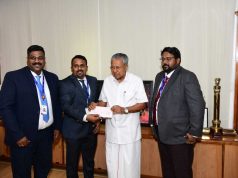Effective Use of Resources for Better Philanthropy
Philanthropy, especially when it comes to providing relief to individuals affected by a disaster, isn’t simply about having good intentions. It is about having the foresight and knowhow to understand the many nuances of the situation and create a real impact. In order to do so, it is extremely important to know in precise detail the situation, how it occurred, the challenges faced, and the victims involved.
This allows one to have analysis-driven insights into exactly what is needed, and come up with an efficient plan of action, so the available resources can be utilised for better philanthropy. This helps ensure that the relief offered is not wasted and instead is able to actually create a difference in the lives of the people affected.
The first step to this involves having a precise estimate of the relief needed, and how best one can effectively use the relief material to provide it. This involves taking stock of various aspects of the crisis, such as the various categories of products required, including basic necessities, medical supplies, infrastructural products, and more. Having the right estimate will not only help streamline the distribution of the relief products, but it will also prevent deficits or overstocking, which may devastate the philanthropic efforts, or lead to unnecessary wastage.
One of the biggest challenges to a successful philanthropic endeavour comes in the form of logistical issues. Getting the vitally necessary products to the right people who need it, especially in a disaster-struck area, is often a difficult task, owing to which, having a smooth supply chain management system is a must. This is particularly helpful in keeping track of the monetary distribution, as well as controlling the segregation and warehousing of the products, helping create accountability and efficiency. The absence of an efficient supply chain is one of the main reasons why relief products from donors often end up not reaching the affected people, with large volumes lost in transit.
An association with a trusted social organisation, with a proven history of driving successful philanthropic campaigns in the past, can also be key to creating the desired impact. This is because such organisations are not only better experienced in the domain, but also possess the required know-how and connections that can be leveraged to have a smoother execution. This is also where having a robust legal team, and a good financial team, becomes extremely important. This is because the legal team can help ensure that the NGO ensures complete compliance with the local regulations, while the financial team can help ensure the effective use of the money received.
In light of this, an efficient accounting system becomes paramount to driving traceability and accountability, so that each and every penny acquired and distributed can be tracked by the organisation. Only when the physical and real-world impact of the philanthropic campaign can be validated, can one measure how successful it has been. Not only will this help ensure efficient and superior performance in the affected areas, but it can also be a way of keeping track of the progress made in the lives affected, and help the individuals reconstruct their lives, for a better future.
Views of the author are personal and do not necessarily represent the website’s views.
 Rohit Shelatkar is the Vice President at Vitabiotics Ltd., one of UK’s fastest-growing vitamin company that has manufactured innovative healthcare supplements for over 48 years creating a unique portfolio of products. He is a health and fitness enthusiast. Along with healthcare, he is highly invested in philanthropy and runs the Grand Maratha Foundation.
Rohit Shelatkar is the Vice President at Vitabiotics Ltd., one of UK’s fastest-growing vitamin company that has manufactured innovative healthcare supplements for over 48 years creating a unique portfolio of products. He is a health and fitness enthusiast. Along with healthcare, he is highly invested in philanthropy and runs the Grand Maratha Foundation.
For more articles from the author, Click here.












